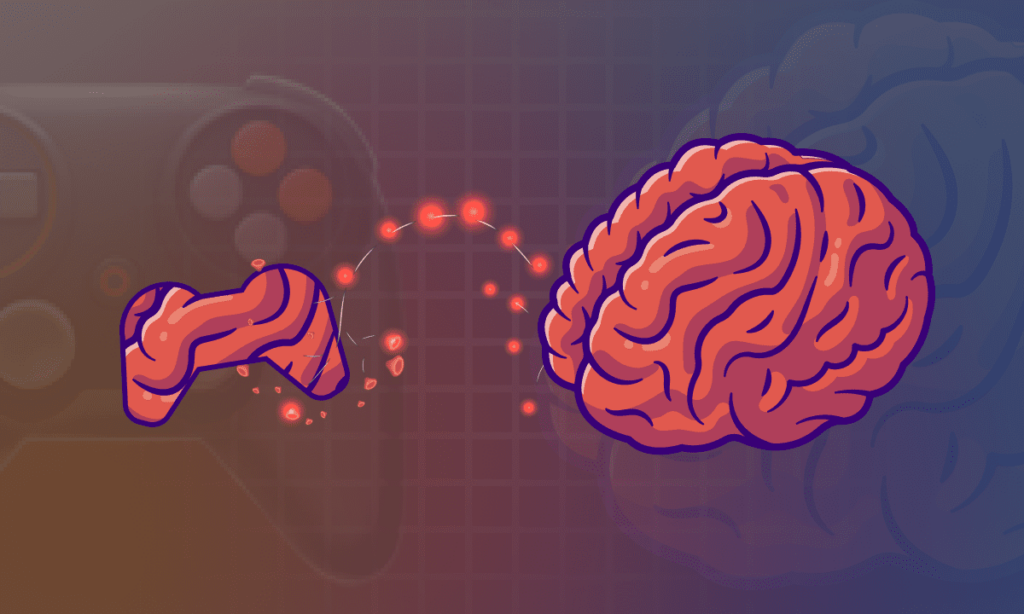
With the gaming industry having rapidly changed in recent times, it has become a topic of great debate. Researchers are delving into its potential benefits and risks. Although screen time and addiction have been long sources of criticism, there is an increasing body of evidence demonstrating the benefits of gaming in cognitive and mental health. In this paper, we investigate the role that games can play in the acquisition of critical cognitive functions and how this relates to the prevention of mental illness and provide a nuanced insight into the effect that games can have.
Table of Contents
The Cognitive Benefits of Gaming
Nowadays, video games are more than just a source of entertainment, can be also considered as an effective means to improve cognitive function by their interactive challenging nature. In contrast to inactive forms of leisure, games and esports require active mental participation on the part of the players. Below is an overview of the particular cognitive abilities they are capable of enhancing:
- Enhanced Problem-Solving Skills
There are so many video games with complicated game play (which is based on puzzles or strategic action) that need fast response and adaptability . Using such games frequently calls upon the complete mental faculty of the player, sometimes even to a greater extent than in conventional learning experiences. Through playing this kind of game, you can certainly enhance critical thinking and problem-solving abilities, which in turn could be used in a real-world scenario.
- Improved Memory and Attention
Games often require players to memorize patterns, track multiple objectives, or navigate intricate environments. Cooperative games, as well as action titles like shooters, can play a significant role here. Research suggests that playing such games and participating in a cs2 tournament today can help improve attention control, enabling players to filter distractions and focus on specific tasks. It’s worth noting that mastering these games is not easy and requires considerable time and effort.
- Multitasking
Think of genres such as RPGs, players are expected to achieve several goals, examplearian task enhancements to items and abilities, quests, and base set up. This requires the ability to handle numerous activities simultaneously. Such game play can be used as a way to improve multitasking and related skills that are useful in high-stress environments.
Mental Health Advantages of Gaming
Another thing to consider is the feasibility of promoting mental well-being and minimising the risk of some mental disorders. But it is of utmost importance to differentiate healthy gaming and excessive playing.
For instance, a balanced strategy to gaming can reduce stress and increase emotional stamina. For a variety of players, game provides an avenue for escape, a pleasurable and secure refuge for stress reduction. For this purpose, you can Watch live streaming or play Stardew Valley or Minecraft, as these titles provide a break from everyday pressure, fostering emotional stability. Playing such type games allows you to engage in creative activities and improve your mood.
Second, multiplayer games and esports domains can enhance social relations. In these games, you focus not only on gameplay but also on communication with your team, as it is one of the key aspects of achieving victory.
Third, games can be employed as therapy and cognitive rehabilitation. Therapeutic use of serious games in healthcare is growing. Activities which engage memory, attention, and/or coordination are used in the treatment of disorders such as ADHD, dementia, or posttraumatic stress disorder. For example, exposure therapy and anxiety treatment can be
facilitated using virtual reality (VR) gaming.
The Role of Games in Preventing Mental Disorders
Although games in themselves cannot substitute professional psychiatric treatment, they may be used in complement to other treatments for promoting well-being and preventing mental ill-health.
Engaging in intellectually stimulating activities, including gaming, promotes cognitive reserve the brain’s ability to cope with aging or neurological damage. Playing strategy and/or puzzle games are good for cognitive stimulation and have the effect of delaying the onset of cognitive dysfunction and related disorders, such as Alzheimer’s disease.
Moreover, research on the interactive games provides a glimmer of a solution to reduce the depression and anxiety symptoms. Playing the role of agents with immersive storylines and/or cooperative play triggers significant affective reactions. Eye bag watching live championship streaming and yelling for a team they support is fond also has the potential to excite viewers and induce the sensation of community, allowing for better mental health.
Challenges Games Need to Overcome
There are also a lot of benefits of gaming, however, there are some problematics that need to be considered to take full advantage of gaming. A key problem is the issue of addiction and play addiction, which may lead to deterioration of mental and physical health. If players play too much it is then worthless, and provides little usefulness.
Accessibility is also a challenge, because many games require expensive hardware or constant broadband, and thus less accessible. Also, problems of online cyberbullying and online toxicity in massively multiplayer environments need to be addressed urgently in order to create safer, more positive environments for all gamers. Provided these issues are set right, the gaming industry might be able to fulfil the potential that it holds, as an educational, healthy and social product.
Conclusion
Based on all, it can be concluded that the effects of video games in cognitive development and mental health are varied. It has been shown to be productive tools for the improvement of problem-solving abilities, memory and attention, and it provides also psychic and social benefits. In addition, their ability to mitigate the development of mental disorder makes them useful to overcome the simple role of a healthy entertainment. Making use of their positive sides, we are still able to complete the seizing of the potential of this malleable medium.



